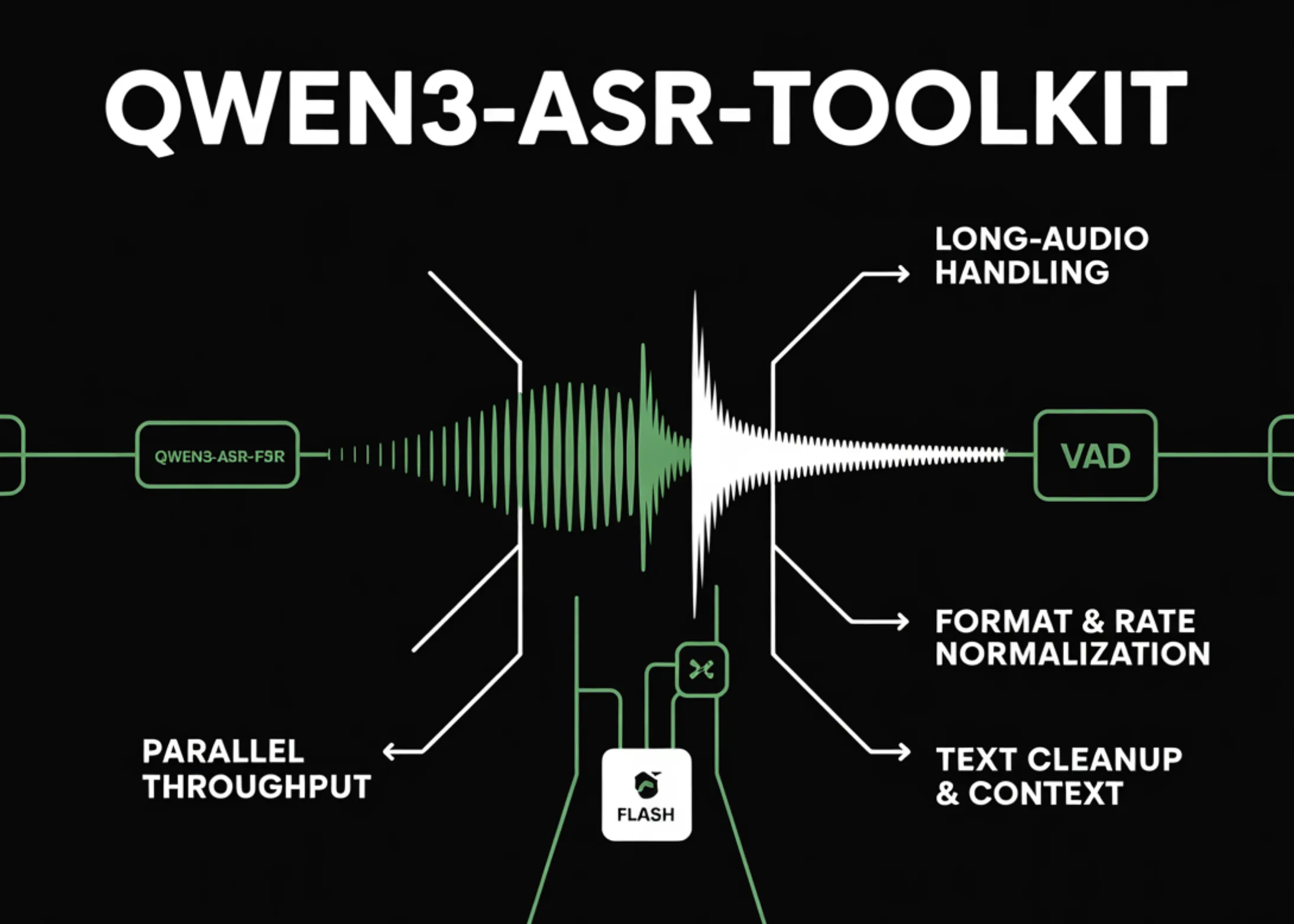
Qwen Launches Advanced ASR Toolkit to Enhance Audio Transcription Capabilities
In a significant advancement for audio transcription technology, Qwen has introduced the Qwen3-ASR-Toolkit, an open-source Python command-line interface (CLI) designed to extend the functionality of the Qwen3-ASR-Flash API. This innovative toolkit provides solutions to the API's inherent limitations, specifically the 3-minute and 10 MB per-request constraints.
Key Features of Qwen3-ASR-Toolkit
- Long-audio Handling: The toolkit employs voice activity detection (VAD) to intelligently slice audio input at natural pauses, ensuring each segment remains within the API's limits. Outputs are then merged in the correct sequence to ensure coherent transcription.
- Parallel Throughput: Utilizing a thread pool, the toolkit allows for concurrent processing of multiple audio chunks. This feature significantly enhances the wall-clock latency for lengthy audio inputs.
- Format and Rate Normalization: Users can convert various audio/video formats (such as MP4, MOV, MKV, MP3, WAV, and M4A) into the required mono 16 kHz format prior to submission, provided they have FFmpeg installed.
- Text Cleanup and Context Injection: The toolkit includes post-processing capabilities to refine transcriptions, enhancing clarity and context.
The Qwen3-ASR-Toolkit is licensed under the MIT License and requires Python version 3.8 or higher. Installation can be easily accomplished with a simple pip command.
Asif Razzaq from MarkTechPost reports that this toolkit is poised to facilitate stable, hour-scale transcription pipelines, allowing users to configure concurrency and optimize text output. This development is particularly valuable for professionals working in fields requiring extensive audio analysis and transcription.
Rocket Commentary
The introduction of the Qwen3-ASR-Toolkit marks a pivotal moment in audio transcription technology, addressing key limitations of its API counterpart. By implementing voice activity detection to manage long audio segments and enabling parallel processing, Qwen is not just enhancing user experience but also setting a new standard for efficiency in transcription tasks. However, while these advancements are promising, we must remain vigilant about ensuring that such powerful tools are accessible and ethically developed. As the industry evolves, it's crucial that innovations like these prioritize inclusivity and transparency, empowering businesses to leverage AI responsibly and effectively in diverse applications. The potential for transformative impact is significant, but it must be matched by a commitment to ethical practices that safeguard user data and promote equitable access.
Read the Original Article
This summary was created from the original article. Click below to read the full story from the source.
Read Original Article